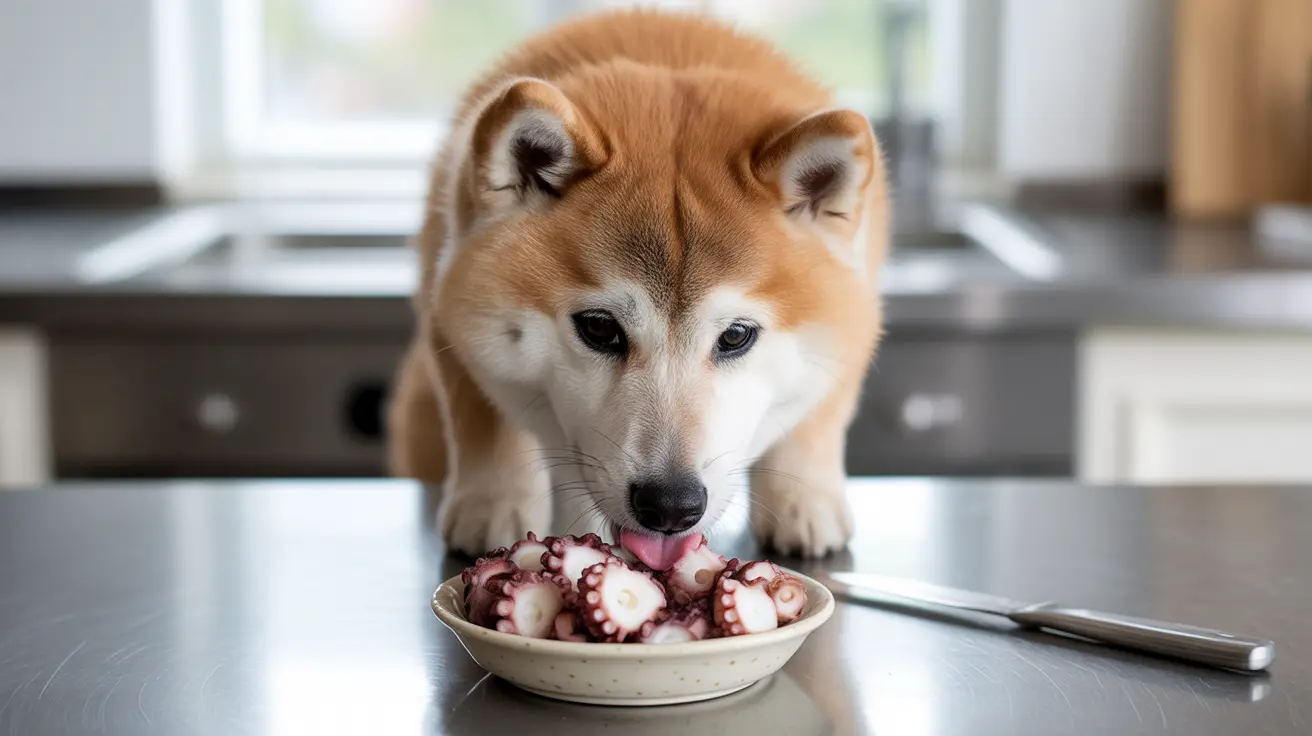The Nutritional Benefits of Octopus for Dogs
Octopus offers several valuable nutrients that can benefit your dog's health:
- High-quality protein for muscle maintenance and growth
- Omega-3 fatty acids for brain health and coat condition
- Essential vitamins including B12, A, and B3
- Important minerals such as iron, zinc, and selenium
- Low-fat content compared to many other protein sources
Safe Preparation Methods
Proper preparation is crucial when feeding octopus to your dog:
Cooking Requirements
- Always serve fully cooked octopus
- Boil or steam without seasonings
- Never serve raw or dried octopus
- Cut into small, manageable pieces
Seasoning Guidelines
- Avoid all salt and spices
- Skip garlic and onions (toxic to dogs)
- Don't use marinades or sauces
Serving Size and Frequency
Moderation is key when feeding octopus to your dog:
- Small dogs: 1-2 small pieces (pea-sized)
- Medium dogs: 2-3 small pieces
- Large dogs: No more than 1 tablespoon
- Limit to occasional treats (1-2 times per month)
Potential Risks and Warning Signs
Health Concerns
Be aware of these potential risks:
- Choking hazards from rubbery texture
- Possible heavy metal contamination
- Risk of bacterial infection if undercooked
- Potential allergic reactions
Warning Signs
Watch for these symptoms after feeding octopus:
- Vomiting or diarrhea
- Lethargy
- Excessive scratching
- Difficulty breathing
- Swelling around face or throat
Best Practices for First-Time Feeding
When introducing octopus to your dog's diet:
- Start with a tiny amount
- Monitor for 24-48 hours
- Watch for allergic reactions
- Gradually increase portion size if no issues occur
- Always maintain moderation
Frequently Asked Questions
Can dogs safely eat octopus, and what are the health benefits?
Yes, dogs can safely eat octopus when it's properly cooked and served plain. Benefits include high-quality protein, omega-3 fatty acids, and essential vitamins and minerals that support overall health.
How should octopus be prepared before feeding it to my dog?
Octopus should be thoroughly cooked by boiling or steaming, without any seasonings, oils, or sauces. Cut it into small, bite-sized pieces appropriate for your dog's size to prevent choking.
What are the risks of feeding raw or seasoned octopus to dogs?
Raw octopus can contain harmful bacteria and parasites, while seasoned octopus may include ingredients toxic to dogs. Raw octopus also poses a higher choking risk due to its rubbery texture.
How much octopus can I give my dog without causing health problems?
Octopus should only make up about 10% of your dog's daily caloric intake and should be given as an occasional treat. Small dogs should receive just a few small pieces, while larger dogs can have up to a tablespoon.
Can octopus cause allergic reactions or choking hazards in dogs?
Yes, some dogs may be allergic to seafood, including octopus. The rubbery texture can also pose a choking hazard, especially for small dogs or if not cut into appropriate sizes.
Remember that while octopus can be a healthy treat for dogs, it should never replace their regular balanced diet. Always consult with your veterinarian before introducing new foods to your dog's diet, especially if your pet has existing health conditions or dietary restrictions.






